Commissioned By
Additional Funding
Methodologies
Forums
Exhibitions
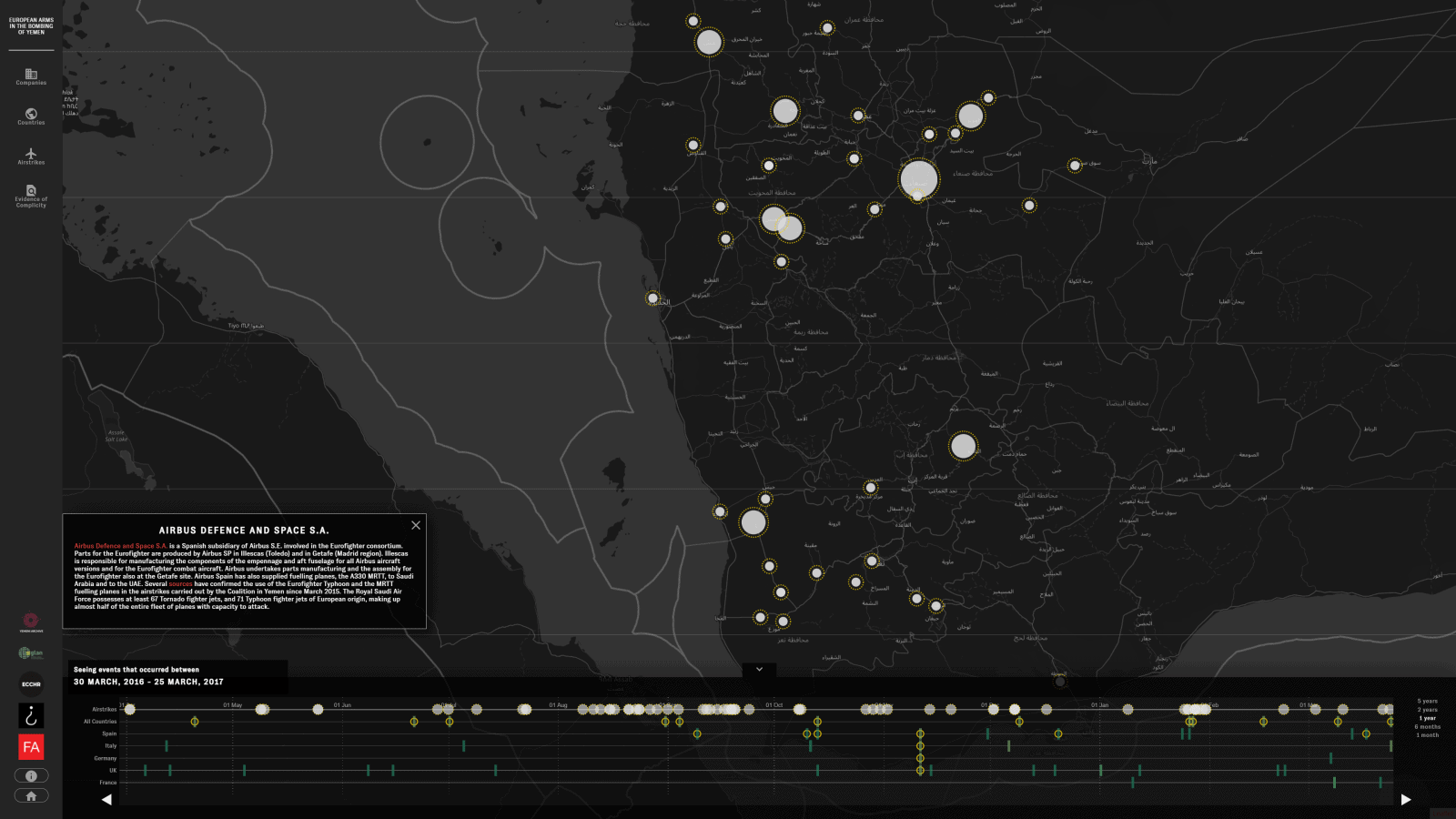
On 26 March 2015, a Saudi Arabia- and United Arab Emirates (UAE)-led military coalition instigated a military intervention in Yemen. Since then, at least 8,759 civilians in Yemen have been killed in scores of indiscriminate and disproportionate airstrikes carried out by the coalition. Today the bombings in Yemen continue to kill innocent civilians and destroy critical infrastructures protected by international law, including homes, schools, and hospitals.
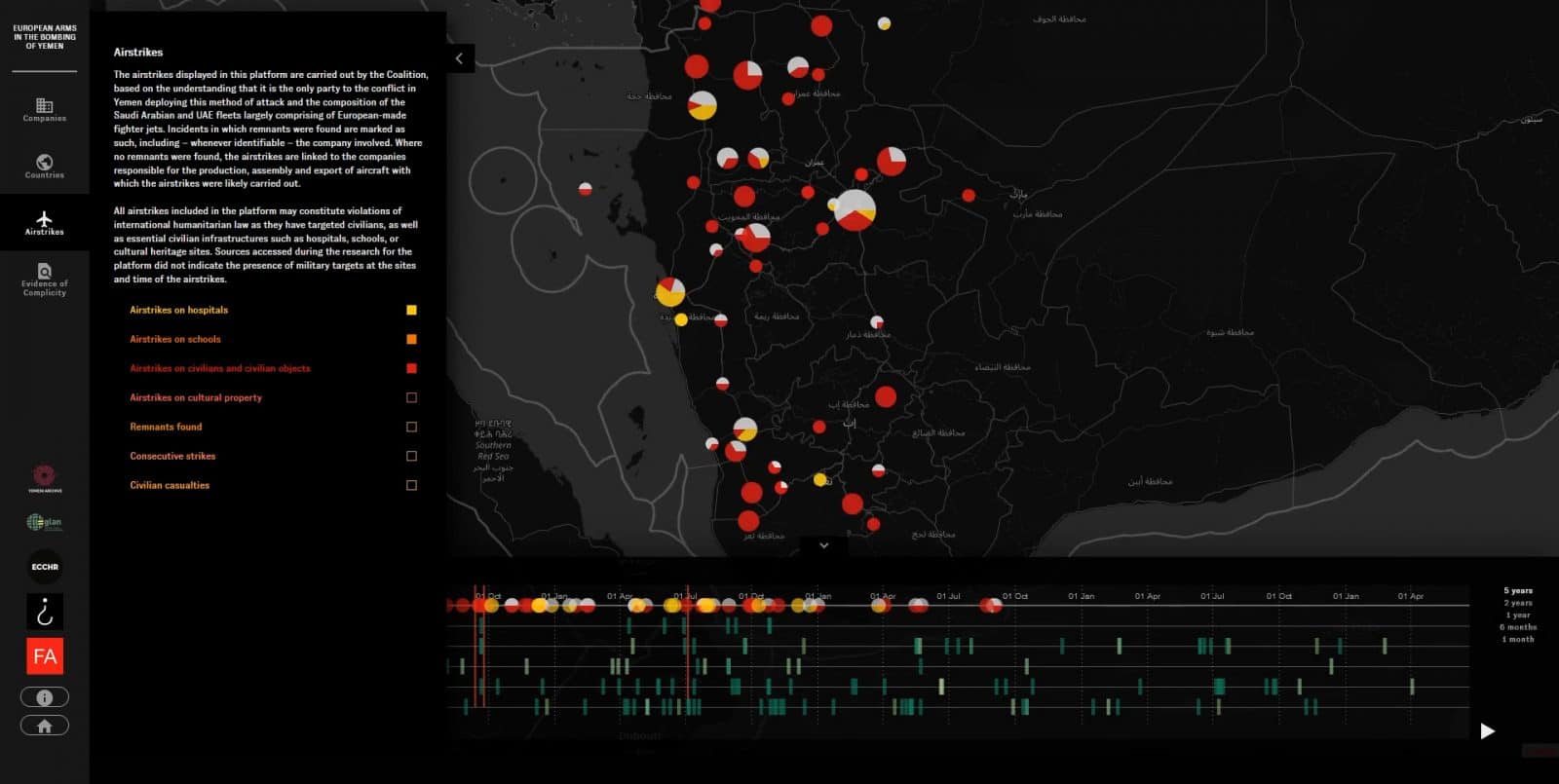
Nevertheless, Saudi Arabia and the UAE remain two of the European arms industry’s largest customers. Despite overwhelming evidence of ongoing violations being committed by the coalition in Yemen, European governments and the European defence industry have not ceased or even decreased their export of bombs, missiles, fighter jets, components and spare parts, nor have they stopped providing maintenance, training and support to Saudi Arabia and the UAE.
In December 2019, the European Center for Constitutional and Human Rights (ECCHR), Mwatana and their European partner organisations called on the International Criminal Court (ICC) to investigate the criminal responsibilities of corporate and government executives of France, Germany, Italy, Spain and the UK. In a 350-page communication submitted to the ICC, the organisations argued that by issuing export authorisations and exporting arms to Saudi Arabia and the UAE, these European actors may be contributing to serious violations of international humanitarian law in Yemen, including war crimes.
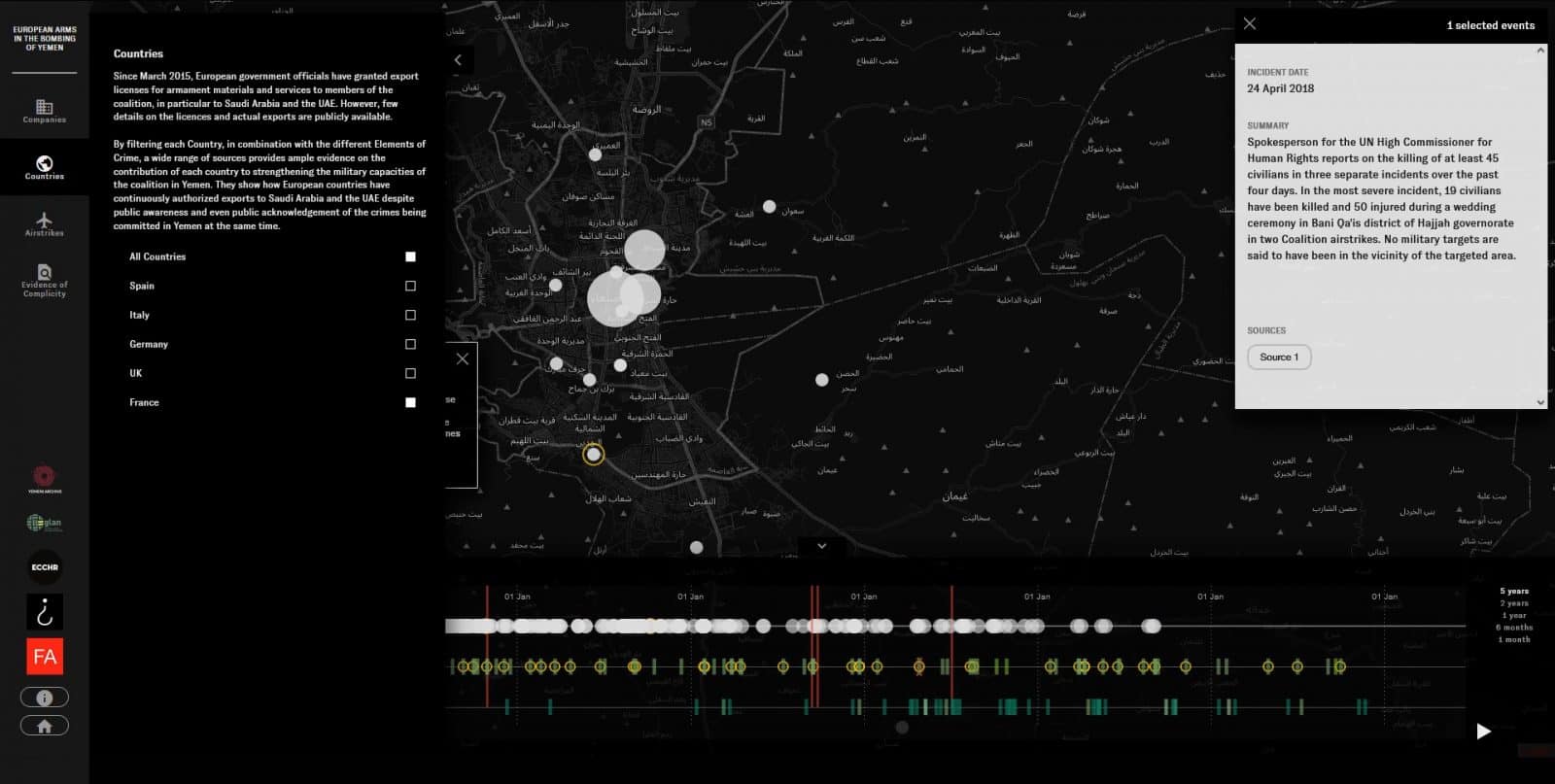
The platform, developed by the ECCHR, Forensic Architecture, FORENSIS, Bellingcat, and Yemeni Archive, the first project of the new Investigative Commons community of practice, exposes the patterns of indiscriminate attacks by the coalition against civilians and civilian infrastructure in Yemen. The platform demonstrates for the first time the direct impact of European arms exports on the continuous targeting of civilians and civilian spaces on the ground. It does so by exposing the relationships between documented airstrikes, found remnants of European weapons, and a timeline of arms exports from European countries to the coalition.
Methodology
Methodology
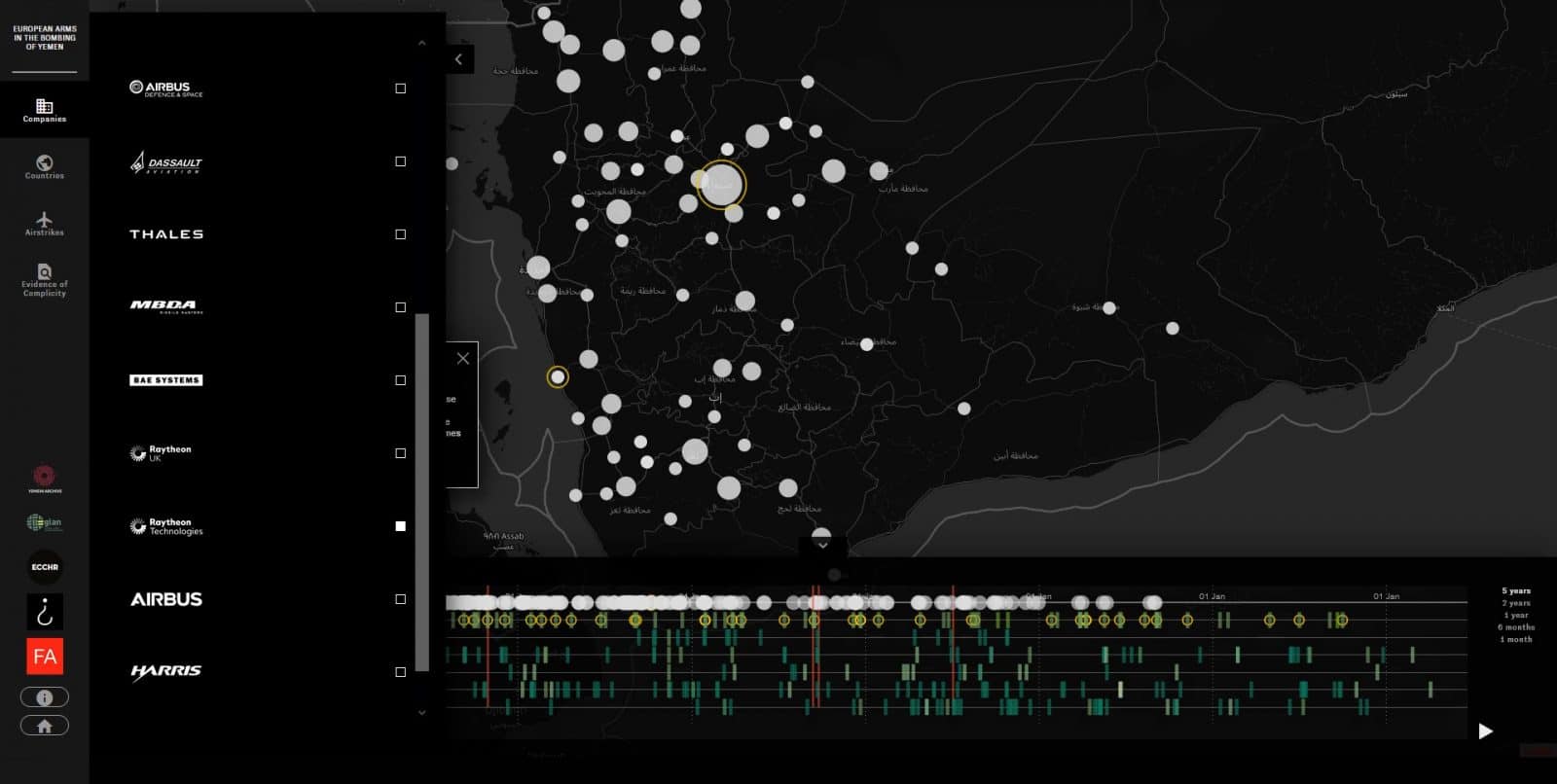
We applied graphic and cartographic techniques to information obtained from extensive field research, open-source investigation, and legal analysis, with which we then built an interactive cartographic platform using our Timemap software. Consolidating and cross-referencing data gathered by each of the participating organisations, we were able to cross-tag events involving European arms companies, including trade deals, parliamentary discussions, and airstrikes to which these companies were both directly and indirectly linked; in this way, actions in Europe by countries and arms companies that had seemingly no clear ties to Yemen can now be read as being entangled with and even fueling human rights violations in against Yemeni civilians.
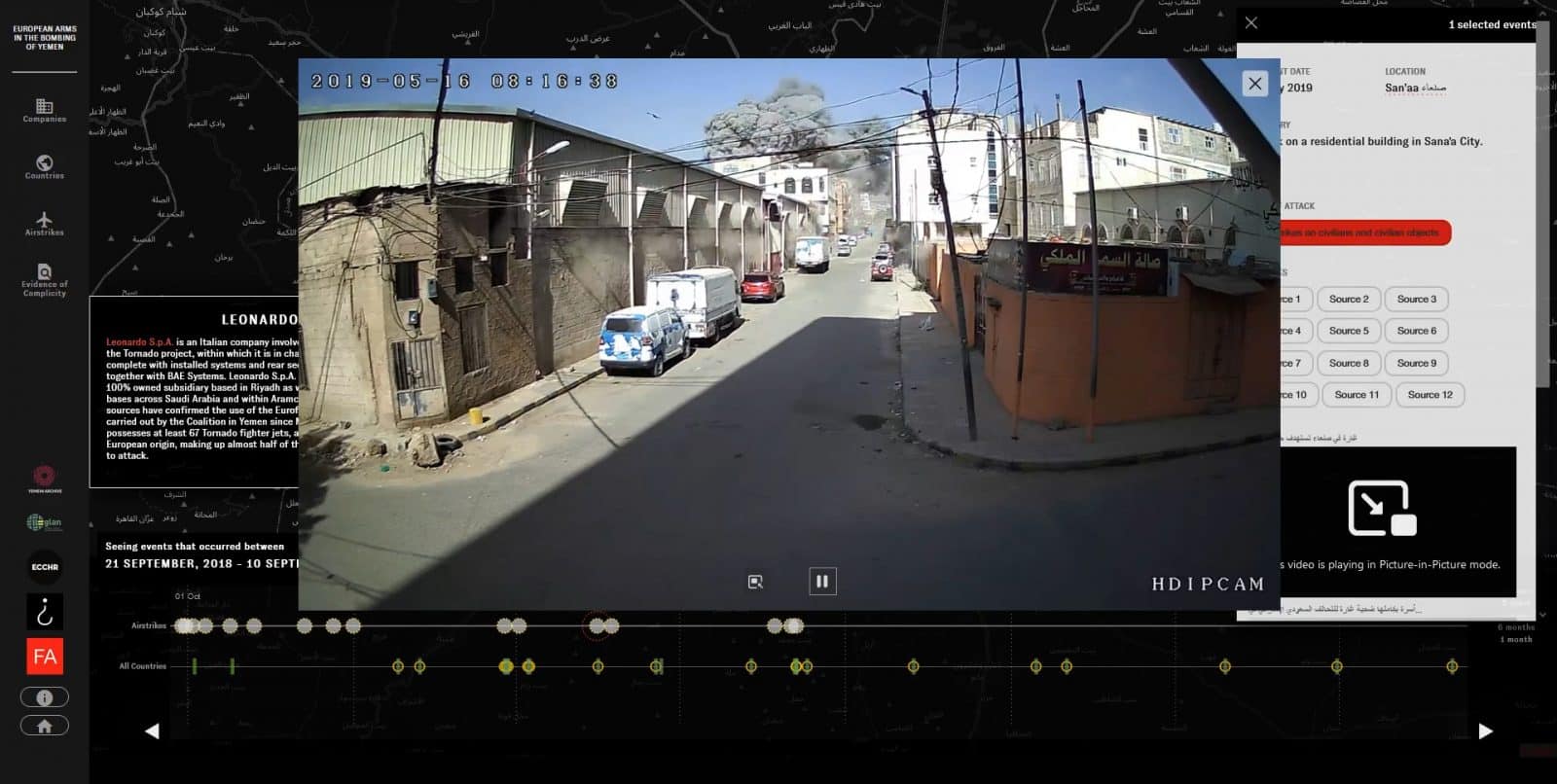
The platform presents information that aims to support both international and domestic prosecution authorities in investigating the criminal responsibilities of corporate and European governments in potentially enabling war crimes carried out by the Saudi-led coalition in Yemen. The platform is also serves as a tool for civil society to better understand the role of the European arms trade in the war in Yemen.